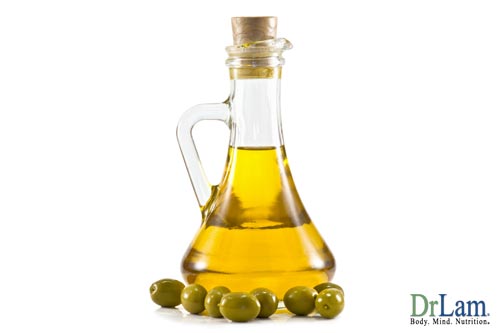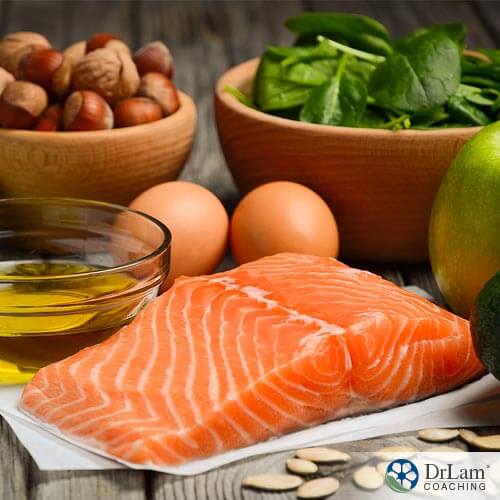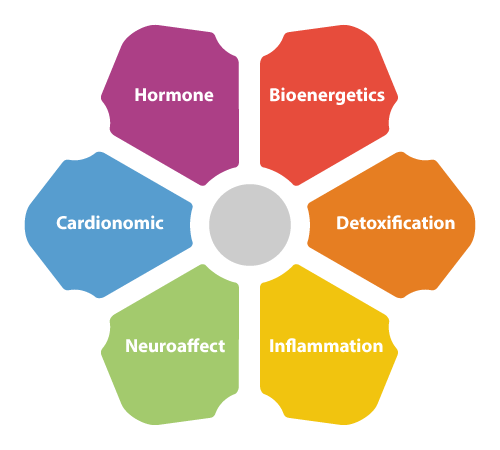 While you may think that leaving saturated and unsaturated fats out of your diet will make the pounds fall away, think again. You see, saturated and unsaturated fats are essential nutrients required for your body to function. Although food containing copious amounts of fat may contribute to weight gain, there are many other factors to consider, such as sugar and carbohydrate intake, as well as the type of fat consumed. And how your hormones, gut, and metabolism react to fats also plays a role, and these are heavily affected by stress.
While you may think that leaving saturated and unsaturated fats out of your diet will make the pounds fall away, think again. You see, saturated and unsaturated fats are essential nutrients required for your body to function. Although food containing copious amounts of fat may contribute to weight gain, there are many other factors to consider, such as sugar and carbohydrate intake, as well as the type of fat consumed. And how your hormones, gut, and metabolism react to fats also plays a role, and these are heavily affected by stress.
There is a saying that “too much of a good thing is a bad thing.” This is probably applicable to just about anything we eat. When it comes to saturated and unsaturated fats, though, there is no denying that it is a contributing factor to the rise in obesity as well as heart conditions. But cutting fats out entirely, on the other hand, could actually increase your chances of not losing the weight you may so desperately be trying to get rid of!
There are many factors involved in the obesity crisis that seems to be taking America by storm. The overconsumption of fat found in fast foods, which has become a staple in many households, is undoubtedly a major contributor – but not all fats are equal. And many people do not know this.
The bottom line with regards to saturated and unsaturated fats is that your body needs them in order to function correctly. They are important for skin and hair health and the absorption of certain vitamins, such as vitamins K, A, D, and E. These are often referred to as the fat-soluble vitamins. Additionally, saturated and unsaturated fat is an insulator, helping to keep you warm during cold periods.
In addition to this, the only way your body can get the essential fatty acids linoleic acid and linolenic acid are by means of the fats you eat. These two essential fatty acids play an extremely important role in blood clotting, brain development, and inflammation control.
But not all fats are created equal, as we shall soon see.
Both saturated and unsaturated fats contain nine calories per gram. Carbohydrates and proteins, on the other hand, contain four calories per gram. Not everyone needs to cut down on saturated and unsaturated fats intake if you are using them in moderation. But what this does mean is that foods high in fat pack more calories into a smaller space. Eating high numbers of calories can cause you to gain weight. You may eat like a bird but gain weight because your total calorie count is high. Choosing foods that are bulky but lower in calories (like legumes and vegetables) is a healthier choice than a small amount of french fries, for example, especially when it comes to weight loss.
Fats do play an essential role in health, however, and it is not healthy to try to cut them out of your diet completely. Some popular diets, such as the keto diet, now focus on consuming high levels of fat and low levels of carbs in order to encourage the body to burn fat. This diet is not necessarily good for everyone, however. The important thing is to do your research, find a diet that is appropriate for your body type, talk to your doctor if you have any medical conditions, and try to do everything in moderation.
 There are three main types of fats: the saturated and unsaturated fats, which have their own sub-groups, and then there are the trans fats.
There are three main types of fats: the saturated and unsaturated fats, which have their own sub-groups, and then there are the trans fats.
Unsaturated fats are usually referred to as the ‘good’ fats. This group includes polyunsaturated fats and monounsaturated fats. When eaten in moderation, they could help reduce ‘bad’ or LDL (low-density lipoprotein) cholesterol which tends to make up most of the cholesterol in the body and raises your risk of heart disease or stroke.
These fats are mostly found in different vegetable oils. They may aid in lowering your cholesterol levels as well as your triglyceride levels, thereby supporting heart health, while reducing your chances of getting a stroke or even developing diabetes. Once such healthy polyunsaturated fat is omega-3. While omega-3 is commonly found in fatty fish like trout, salmon, and mackerel, it is also found in certain seeds and nuts such as flaxseed and walnuts. Many studies also suggest that omega-3 fatty acids are beneficial to those suffering from a range of conditions, including dementia, while they may also reduce the need for certain corticosteroid medications.
Polyunsaturated fats also include omega-6 fatty acids. This fatty acid may also help protect you against heart conditions. Foods that are rich in this type of fatty acid include vegetable oils like soybean, sunflower, walnut, and safflower oils.
People living in Europe’s Mediterranean region tend to have a diet high in fat – yet, they have a much lower rate of heart-related conditions. This is because their staple form of fat, olive oil, is a monounsaturated fat. These days, the “Mediterranean Diet” is often recommended to people who are in desperate need of a weight loss plan.
Monounsaturated fats are usually liquid when at room temperature, but tend to solidify if refrigerated. They are an excellent source of vitamin E, an antioxidant that tends to be lacking in the diet of most people living in the USA. Good sources of monounsaturated fats, besides olives and olive oil, include sesame seeds, avocados, cashew nuts, almonds, canola oil, and Brazil nuts, to name but a few.
 Saturated fats are fats that are mainly found in animal products - meat, eggs, cream, cheese, and butter. They are also found in some vegetable fats, such as palm oil and coconut oil. These vegetable fats are normally in a liquid state when at room temperature.
Saturated fats are fats that are mainly found in animal products - meat, eggs, cream, cheese, and butter. They are also found in some vegetable fats, such as palm oil and coconut oil. These vegetable fats are normally in a liquid state when at room temperature.
It is usually recommended that when you use these fats, you do so sparingly, as too much may raise not only your cholesterol levels but also clog your arteries and increase your risk of developing heart issues. Some evidence suggests that saturated fats may increase your risk of developing prostate and colon cancer.
The American Heart Association recommends that you keep saturated fats to just seven percent of your daily calorie intake.
But the verdict is not in as to whether saturated fats are actually ‘bad’ for you. In infants, for example, the essential saturated fatty acids produced by a mother while breastfeeding (caprylic, palmitic, stearic, lauric, capric, butyric, and caproic acids) are important for their development, growth, and survival. Furthermore, the heart’s preferred fuel source seems to be saturated fatty acids, which is your body’s fuel source during times of hard physical exercise. When your body is submitted to exercise, and it encounters a shortage of fatty acids, it actually makes them in order to use during this time of physical stress. During times when you subject your body to a diet extremely low in fats, your body uses the food you eat and transforms it into these fatty acids.
However, the connection between types of saturated fats and cholesterol is not simple. Evidence suggests that while some of them may contribute to the formation of ‘bad’ cholesterol, others are neutral in this regard. A number of studies also indicate that no matter the diet, some people tend to be prone to high cholesterol while others are not, even when on a diet with significantly lower saturated fats. However, those with a higher cholesterol count could benefit from a diet low in saturated fats for weight loss purposes.
Small amounts of trans fats are found in both dairy products and meat. The percentage is very small. Artificial trans fats, however, such as are extensively used for commercial baked goods, in certain kinds of margarine, icings, and packaged snack foods, is a serious cause of concern. Research indicates even small amounts of this type of fat may decrease your ‘good’ cholesterol and increase your ‘bad’ cholesterol and is a contributing factor not only to heart conditions but obesity as well. Trans fats have also been linked to an increased risk of developing certain types of cancer.
 Saturated and unsaturated fats are essential nutrients for your body’s health. They play a role in gut health. Coconut oil, according to research, helps protect the brain against Alzheimer’s and dementia. Saturated and unsaturated fats also play a role in preserving eye health as well as in preventing certain types of cancer. They also play a large role in the effective production of hormones, something that tends to go out of balance when suffering from adrenal fatigue.
Saturated and unsaturated fats are essential nutrients for your body’s health. They play a role in gut health. Coconut oil, according to research, helps protect the brain against Alzheimer’s and dementia. Saturated and unsaturated fats also play a role in preserving eye health as well as in preventing certain types of cancer. They also play a large role in the effective production of hormones, something that tends to go out of balance when suffering from adrenal fatigue.
Stress, whether physical, psychological, or environmental in nature is the main contributing factor to the onset of adrenal fatigue. Stress can also cause major oxidative damage, something which tends to set your body’s automatic NeuroEndoMetabolic (NEM) Stress Response into action. This causes changes in your cardionomic, inflammation, hormone, detoxification, and neuroaffect circuits. These circuits all work together to keep your body in a state of good health. If one of these systems is compromised, your body experiences a cascading effect, with other systems also becoming affected and developing their own set of interrelated symptoms.
The fatty acids present in saturated and unsaturated fats play an immensely important role in hormone production. The cholesterol found in these fats is responsible for the formation of adrenal steroid hormones. In other words, cholesterol is needed for the production of these hormones. During times of stress, higher levels of cortisol, for example, are needed. This cortisol can only be manufactured if the cholesterol required is available. When your hormonal balance is disrupted, thyroid imbalance may result. Low thyroid function has an effect on your NEMs metabolic response. Your thyroid is closely related to metabolism, with a decreased thyroid function resulting in metabolic pathways that start slowing down. The result is that your brain receives less fuel to defend itself against stress.
A shortage of saturated and unsaturated fats may also compromise gut health. A compromised gut, together with a lowered metabolism, could result in weight gain and possibly obesity. Conversely, as the different body components become affected, they, in turn, put your body under even more stress, causing a cyclic effect. The end result may be a body that has numerous systems affected, resulting in a number of health conditions that you may not even realize are related to one another.
At the end of the day, it is not about whether you should cut saturated and unsaturated fats out of your diet. Indeed, your body needs the fatty acids in order to function correctly. It cannot do without them. Moderation, as with most things in life, is key, together with a balanced diet that allows your body access to all the vitamins and minerals it needs to function correctly. Making certain lifestyle choices, such as getting enough exercise, enough rest, and trying to stay away from stressful situations, also plays a large role in addressing adrenal fatigue and keeping a healthy weight. Ultimately, moderation in everything may be the key to a healthy body that has all systems working in sync. And whatever you do, try to stay away from trans fats.
© Copyright 2012-2019 Michael Lam, M.D. All Rights Reserved.
Saturated and unsaturated fats are key elements in both physical and mental health. They are also needed for adequate hormone production. While overuse of fats may contribute to weight gain, as part of a balanced diet and lifestyle they may have no negative effect.
